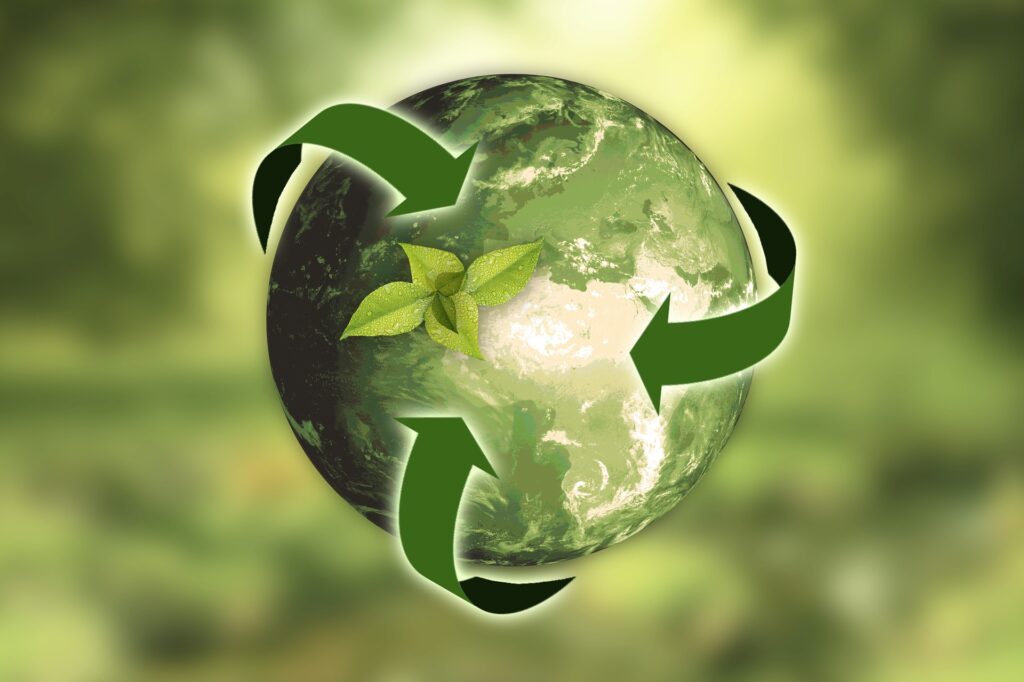Recent years have seen the European Union (EU) focus on sustainability by creating a circular economy, where the life of products is extended for as long as possible. This is all working toward the EU’s goal of reducing greenhouse gas emissions by 55% by 2030 and becoming carbon neutral by 2050.
In March of 2022, the EU’s European Commission announced new proposals to help the bloc make headway with the Circular Economy Action Plan, part of the European Green Deal.
These new proposals especially target overconsumption for everyday items like clothing, furniture, and electronics. They focus on how these items can be reused, repaired, and recycled, making it easier for common consumer goods to be part of a circular economy. The proposals also focus on ecodesign requirements, which will encourage the use of recycled materials and product sustainability.
If you are a manufacturer in the EU or import products to the EU, you’ve likely been hearing about these proposals. While exact rules are not in place yet, it is best to start preparing now to adapt to the EU’s focus on sustainable regulations to avoid losing market access.
Focus on Ecodesign
As part of this plan, the EU is proposing a new Ecodesign for Sustainable Products Regulation (ESPR), which will help make products more durable, reliable, reusable, and repairable as well as more energy efficient. It will restrict substances that currently make products difficult to recycle and will also require a minimum amount of recycled content in products. Furthermore, there will be regulations for the end-of-life of products, including requirements for the ease of recyclability.
Of course, products differ by their use. The EU plans for products that share the same characteristics to meet certain standards, while different product groups may have a different set of standards appropriate to their manufacturing process and market use.
The proposal will also ban green-washing, which is a practice where companies claim sustainable and eco-friendly labels and/or descriptions that are not accurate. Intentionally planned limited lifespans for products that cause consumers to purchase new products and/or parts before they might otherwise have to will also be banned. The goal is to create a longer lifespan for products through their design, ultimately reducing overconsumption.
Digital Product Passports and Consumer Empowerment
One key focus of the EU’s new proposal is empowering consumers to make sustainable choices when purchasing products. To do this, the EU plans for every product regulated under ESPR to come with a digital passport.
This digital product passport will give consumers information on the content of products, the product’s repairability, and how the product can be responsibly recycled.
Giving consumers access to this information will empower them to make informed choices about their purchases and contribute to creating a circular economy by repairing and recycling products as appropriate.
Special Product Focuses of ESPR
Because the standards and manufacturing of some products may differ, the EU is laying out additional and/or separate rules for some groups of products.
Textiles
Fast fashion has quickly become an environmental problem, with clothes filling up landfills at an alarming rate. The proposed ESPR would include rules for textiles, including ecodesign requirements and a digital product passport.
In conjunction with ESPR, the European Commission is also adopting a strategy to specifically focus on creating sustainable textiles and to encourage circular economy business models.
Construction Products
Because safety and structural performance is crucial in construction, a new Construction Products Regulation is being proposed. While ESPR will still apply to construction products, the Construction Products Regulation will be in place to make sure construction products still meet health and safety requirements.
Batteries
Because of their unique nature, there will be a special proposed battery regulation explaining how batteries can meet sustainability requirements. ESPR may cover other aspects of battery sustainability, such as how they are used in other products.
Packaging
Product packaging can easily contribute to unnecessary waste. Current packaging requirements fall under the Packaging and Packaging Waste Directive (PPWD). Packing will be included in any ESPR rules, and they will work in conjunction with existing PPWD rules.
Electronics
Electronics is the fastest growing source of waste for the EU. As electronics become an essential part of modern life, the increased rates at which they are breaking or becoming obsolete without being able to be repaired or updated has contributed to this growing stream of waste.
ESPR rules will specifically look for ways electronics can become more sustainable with ecodesign and increased energy efficiency. The Restriction of Hazardous Substances (RoHS) directive for electrical and electronic equipment will also be reviewed to ensure it is meeting its objectives.
Timeline for New EU Rules
As of March 2022, the EU Commission’s ESPR is a framework. In order for it to be effective, legislation will need to be put in place. Until this happens, the current Ecodesign Directive will continue as is.
We should know more by the end of 2022. A public consultation is set for the end of the year in order to set priorities for the first categories of products that will be regulated under ESPR.
What Should EU Manufacturers Do Now?
No matter the timeline for when the new EU rules go into effect, there is no denying the increased focus on sustainable products. In the coming years, it is likely we will see further legislation. This will not only come from the EU, but from other countries around the world as governments begin to regulate products to combat climate change and waste from overconsumption.
Begin preparing your products now to adapt to these changes. From understanding the chemicals in your products to building an effective supply chain, how you adapt to legislation focused on creating sustainable products will impact your market access for years to come.
For help in understanding the steps you need to take, contact Tetra Tech’s product compliance experts at [email protected]. We can help you create an effective plan to reach your sustainability goals.






